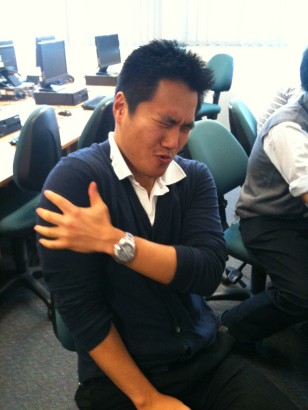Doctors can 'see' and measure pain by using brain scan
This breakthrough, though, could open the door for other kinds of pain, according to the msn report.
Doctors can 'see' and measure pain by using brain scan
In a provocative new study, scientists at the University of Colorado in Boulder reported a breakthrough in pain management by "seeing" pain on brain scans and measure its intensity as well as whether a drug was relieving the pain. In its initial study, it applies only to pain felt through the skin when heat was applied to an arm. This does not include more common kinds of pain such as headaches, bad backs, and pain from disease
This breakthrough, though, could open the door for other kinds of pain, according to the msn report.
Doctors can 'see' and measure pain by using brain scan




